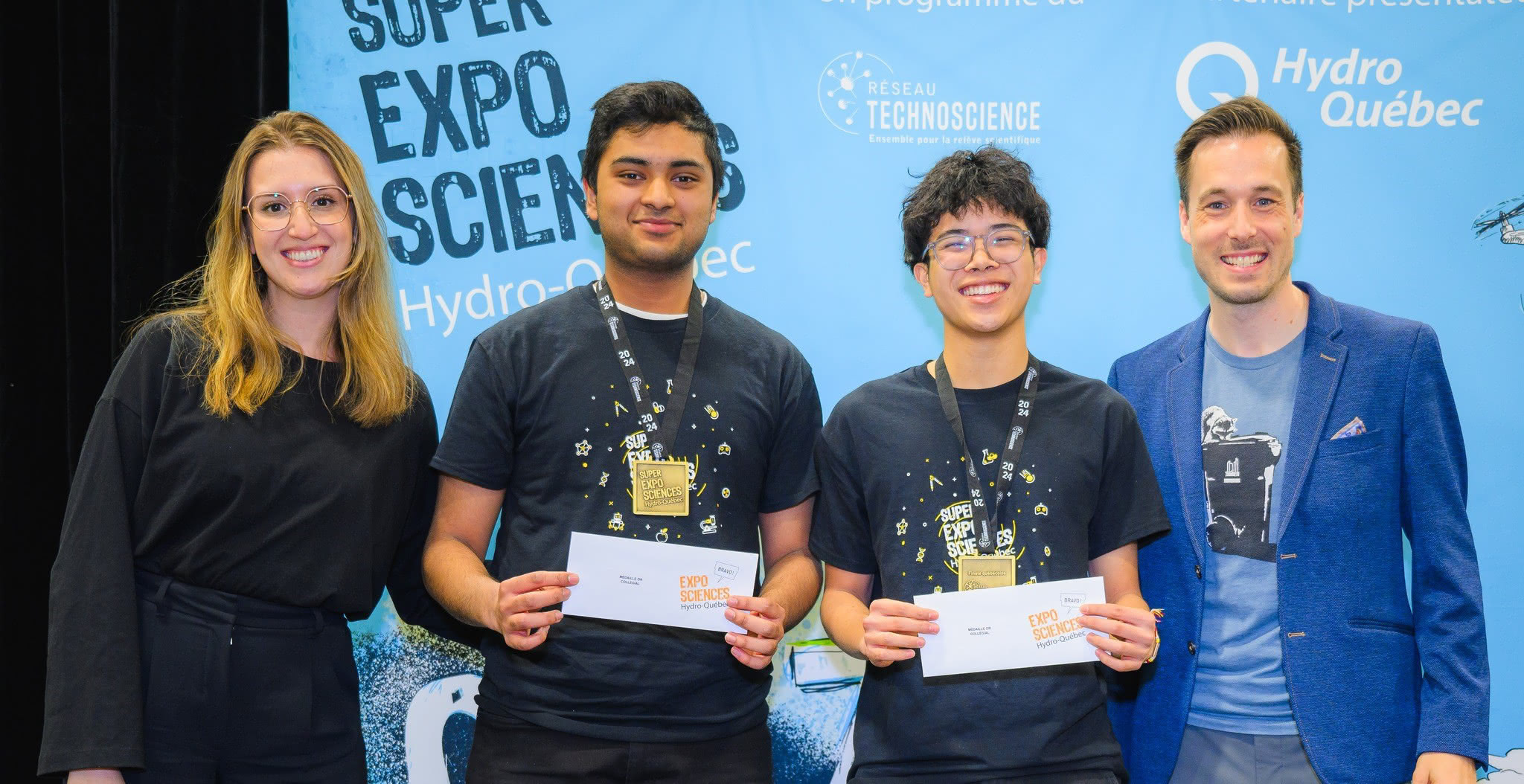Students Win Gold at Quebec Science Fair Final, Advance to Canada-Wide Competition
April 2024 – A team of Marianopolis students took home the collegiate top prize at the 2024 Super-Expo Science provincial final.
Health Science students Rahul Patel and Nathan Vong earned the Réseau Technoscience Gold Medal for their project The Biological Shield, a study about the potential use of biofilms to protect gut microbiomes.

Rahul and Nathan will now be advancing to the Canada-Wide Science Fair as one of four teams representing Quebec at the competition later this spring. This is the second consecutive year Marianopolis students have advanced to the national competition after earning gold in the provincial final.
They also won the Prix de l’Université d’Ottawa, each receiving an undergraduate research grant worth $11,500 and the opportunity to work under the guidance of senior University of Ottawa researchers for two summer internships.
As they prepared for the Science Fair, Nathan and Rahul had the opportunity to conduct their experiment at Professor Éric Déziel’s laboratory at the Centre Armand-Frappier Santé Biotechnologie de l’INRS, with the help of microbiology graduate student Sandrine Gervais.
Read more about their project below!
The Biological Shield
Rahul Patel and Nathan Vong
This experiment provides a new perspective on the study of biofilms and suggests possible novel approaches to protecting gut microbiomes. A biofilm is a community of microorganisms made of one or several species that stick together and live on a surface. The microorganisms form an extracellular matrix, making them more resistant to the stress of their environment, notably antibiotics. Biofilm formation is often studied by looking at how they strengthen pathogenic bacteria with the intention of limiting its formation.
Currently, there is little research on how biofilm could potentially be a positive way to strengthen the probiotic bacteria in humans and protect our gut microbiome from the use of oral antibiotics.
The goal of this experiment is to determine whether certain products promote biofilm formation and if a larger biofilm is inherently more resistant to antibiotics. The experiment involved adding specific ions (Cu2+, Fe3+, Mn2+ (with glycerol), Co2+), food products (chickpea milk), and intercellular signaling molecules (autoinducer-2) to a culture of Bacillus subtilis to test if these substances can promote antibiotic resistance in this probiotic bacterium.
Through the methods of a microtiter dish biofilm assay, the amount of biofilm formed is quantified at varying incubation times and concentrations of cephalexin, a commonly used oral antibiotic in human treatment.
The results indicate that certain products promote biofilm formation in both the absence and presence of cephalexin, although there was no correlation found between the initial size of the biofilm and its antibiotic resistance.
Results suggest that the concentration of cephalexin used in the presence of these inducers caused a non-lethal stress which further promoted biofilm growth. Although the experiment does not entirely prove the beneficial properties of all the inducers, it is a start to developing methods that can promote biofilm formation.